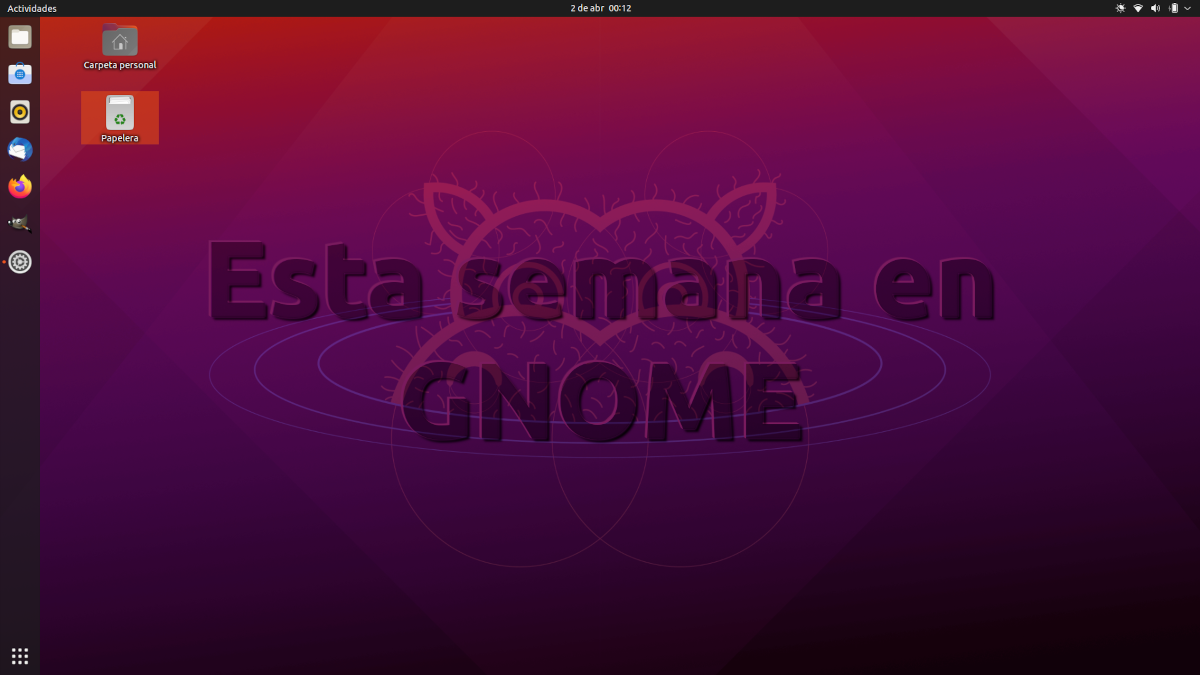
A while ago we have published a new post about what's new in KDE. The K project has been going on for a long time, although at first it was an initiative to improve things called KDE Usability & Productivity. As they saw that they were doing well and it was interesting, it is now called This Week in KDE. I do not know very well what they have been based on or why they have done it, but for a couple of months it has also been published This week in GNOME.
To be honest, the entry number 9 It is not the first I see about this initiative, but for some reason I thought it was not something to take into account. Maybe because I'm more of KDE, I don't know, but the only certain thing is that the project behind the most used desktop in Linux opened a page (July 16) call thisweek.gnome.org, so it is expected that they will publish entries every week talking about everything they have done in the last seven days. Like KDE, but with a different structure.
This week in GNOME, the changes to come
- libadwaita has simplified the appearance of the buttons in the title bar.
- All GNOME Circle applications (something like KDE Gear, but with third-party software) have been added to the default list in the software store.
- GNOME 41 Release Candidate is now available. Regarding Ubuntu, it has not been confirmed yet, but it probably won't be used in Impish Indri.
- Déjà Dup has received support to avoid scheduled backups during power saving mode and gaming mode. It has also redesigned its "oauth access granted" page to be much prettier and to support dark mode.
- Polari, an IRC client, has entered the GNOME Circle.
- The first stable version of Relm4, a gtk4-rs-based idiomatic GUI library, was released with the goal of making GTK4 application development in Rust simpler and more productive. In particular, Relm4 now offers support for libadwaita, a complete beginner's book, and many other enhancements.
- Telegrand is a Telegram client optimized for GNOME, and day dividers have been implemented in the chat history and the sender of the last sent messages has also been added to the chat list. On the other hand, the tdlib message database feature has been added that allows Telegrand to be used in offline mode and also speeds up the opening time. Finally, the senders' names have been colored using the same color scheme used in Telegram Desktop and an icon has also been added for pinned chats.
- Support for multiple accounts has come to Fractal, a messaging app for the Matrix.
- The list of Applications for GNOME.
Fewer points, but better ordered
This week in GNOME and This week in KDE perfectly reflect how both projects work. While KDE publishes dozens of points every week, GNOME publishes less, but I think it explains them a little bit better. It is clear that Nate Graham cannot elaborate much on each and every one of the changes he mentions, but a normal user may miss captures or a video. He adds it when he can, but if he did it for everything, the articles would be much longer and the pages would be heavier.
This week in GNOME should continue indefinitely, and I think it will encourage developers to further improve the desktop using major version of systems like Ubuntu or Fedora. GNOME doesn't need as many changes as KDE 4, which a few years ago was so unstable that I tried to use Kubuntu and, liking what I saw, I had to quit because it crashed too much. GNOME will improve with this initiative, both in terms of design and functionality, but it will remain true to its philosophy.